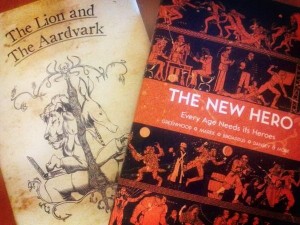One of the questions that popped up for Russell Bailey and Eddy Webb, the developers for Strange, Dead Love, alluded to the impression that romance was primarily for women. The question really struck me and I want to talk about it in a more generic context about paranormal romance than address what it means to Vampire: the Requiem.
For the past couple of years, I’ve been involved with a romance writer’s group. I am not what you would consider a traditional romance reader or writer. Sap is really not my cup of tea. My flavors tend to run darker, like the types of relationships you might see in Dracula or Buffy: the Vampire Slayer. The reason why I dived into this group was to overcome my (for lack of a better word) stupidity about the genre as a whole from a creator’s perspective. When I first started, I was hesitant to infuse lipstick with vampires in my own work.
This group of men and women took my flowery impressions of romance and really helped me better understand it from a technical standpoint and, even better yet, a reader’s point-of-view. Romance isn’t just about one thing (e.g. smooches, a box of chocolates, or tears). Those elements — whether they’re part of the setting or not — allow the characters to express their emotions. A romance isn’t a scene or a dozen roses: it’s a story arc just like any other.
Those emotions get stronger as the story progresses. BUT! (And this is a big but in my book…) It’s harder to pick up a romance two-thirds of the way through. Like any other book, you really have to start from the beginning and understand what happens between those two characters in order to feel the emotional impact of their relationship.
Getting back to vampires…
I’ve read a lot of vampire fiction and watched, well, too many movies to count. Some authors like ghosts or zombies or fairies? Me? I’m a vampire girl. Tried and true. Like traditional romance, there are many flavors of paranormal romance that include vampires. There are some stories that don’t dive into the nature of a vampire and focus on the mortal who faces the predator instead. There are others that highlight the tragedy of the romance because vampires are damned, evil creatures. And then? There are some romances where vampires are just window dressing.
When I think about audiences for paranormal romance, I think about audiences for other emotionally-driven genres like horror. I feel, and continue to feel, that whether or not “a” man or “a” woman will like a particular title comes down to personal preference. With romance, it’s tough because it’s also heavily-influenced by cultural norms and attitudes. Take physical contact for example. If I just met you, how would you feel if I walked down the street with my arm around your shoulders? Men kissing in Europe means something different than men kissing in the States. Etc. Etc. Etc.
Based on my experiences, I don’t think romance is exclusively for men or for women. That’s what marketing is saying. That’s how they sell and, from what I’ve learned, companies like Harlequin and the authors who work for them are dedicated to providing what their established audience wants to read. They do an amazing, amazing job!!!
Anecdotally (for I don’t have hard numbers on this) paranormal romance does seem to attract a broader audience because there’s often other plots happening at the same time. Genre lines are pretty blurry, but paranormal romance and urban fantasy are often intermixed because of that. To an author, though, the romance is about the story between the characters. If you get the chance to talk to a romance author — of any sort — I highly recommend that you do. These conversations changed my view on romance entirely and have allowed me to introduce those types of stories into my own work.
I have the utmost respect for all flavors of paranormal romance and the authors therein — which is why I was thrilled to be a part of Strange, Dead Love. I can only hope my contribution did the genre justice within the context of Vampire: the Requiem. Guess I’ll just have to find out what you think! *gulp*



